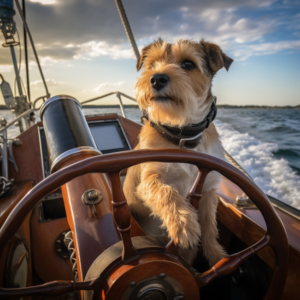Shipowners have a number of rights and responsibilities under maritime law. These rights and responsibilities are governed by a variety of sources, including international treaties, national laws, and custom.

What are Shipowners’ Rights and Responsibilities
Shipowners’ rights and responsibilities are multifaceted, balancing operational autonomy with the duty of care towards the crew, passengers, and cargo. Here’s a breakdown:
Rights
- Operational Control: Shipowners possess the right to use, manage, and control their vessel, making crucial decisions regarding its operations.
- Financial Entitlement: They are entitled to receive payment for services rendered by the ship, such as transportation of goods or passengers.
- Liability Limitation: Under certain conditions, shipowners can limit their liability, minimizing financial risk associated with unforeseen losses.
Responsibilities
- Maintaining Seaworthiness: There is an imperative to ensure that the ship is fit for voyage, adequately maintained, and safe for everyone on board.
- Due Diligence in Safety: Shipowners must exercise due diligence to prevent accidents, safeguarding the well-being of the crew, passengers, and cargo.
- Compensating for Negligence: If negligence on the part of the shipowner leads to losses, they are responsible for providing due compensation to affected parties.
Examples of Shipowners’ Rights and Responsibilities
Here are some examples of shipowners’ rights and responsibilities:
- The right to hire and fire crew members
- The right to decide the route and destination of the ship
- The right to load and unload cargo
- The responsibility to maintain the ship in good condition
- The responsibility to provide safe working conditions for crew members
- The responsibility to comply with all applicable laws and regulations
What are the liabilities of shipowners?
Shipowners are liable for losses caused by the negligence of the shipowner, its employees, or agents. This includes losses caused by accidents, collisions, and fires.
Shipowners can also be liable for losses caused by the unseaworthiness of the ship. This means that the ship is not fit for its intended purpose and that it is not safe to operate.
Limitations of shipowners liability
Shipowners can limit their liability for certain types of losses. This is done through a legal doctrine known as the limitation of liability.
The limitation of liability is a complex topic and the specific rules vary from country to country. However, in general, shipowners can limit their liability to the value of the ship.
Obligation of seaworthiness shipowner and charterer
The obligation of seaworthiness is a legal duty that is imposed on both shipowners and charterers. This means that they must ensure that the ship is fit for its intended purpose and that it is safe to operate.
The obligation of seaworthiness is a strict liability, which means that the shipowner or charterer is liable for losses caused by the unseaworthiness of the ship, even if they were not negligent.
What does a shipowner normally owe to the charterer?
The specific obligations of a shipowner to a charterer will vary depending on the terms of the charterparty. However, in general, a shipowner is normally obligated to provide the charterer with a seaworthy ship, to properly crew and equip the ship, and to carry out the voyage as agreed.
